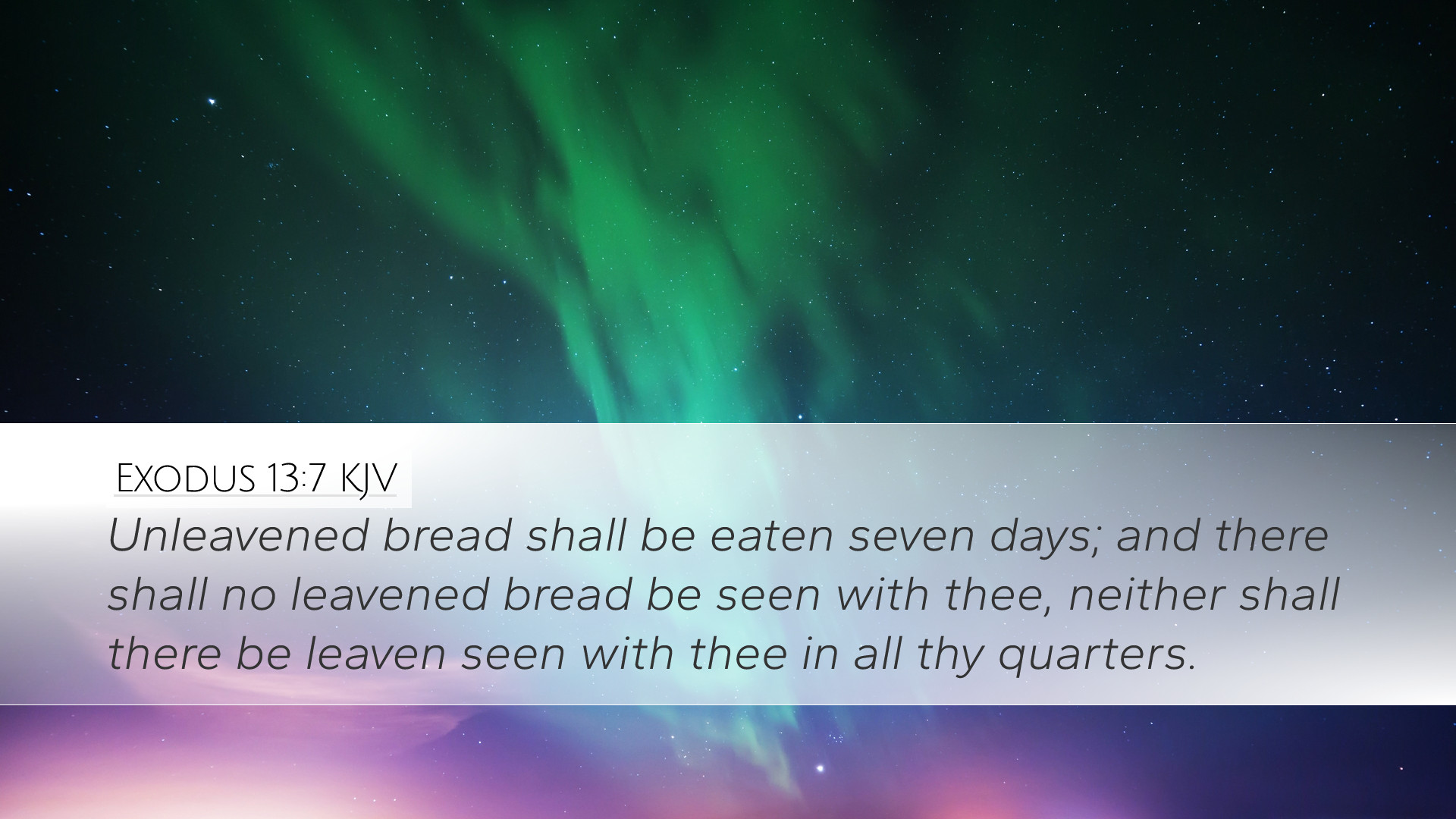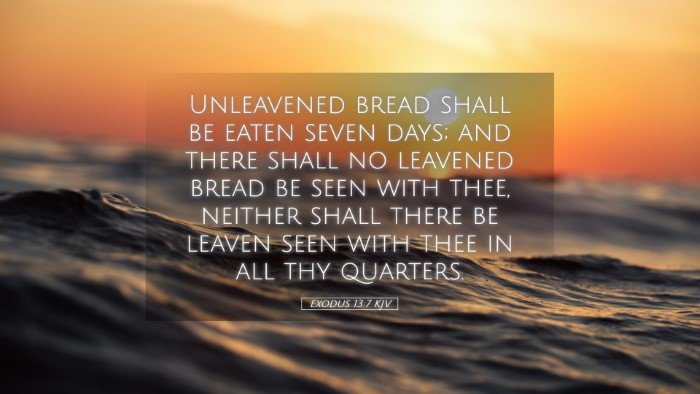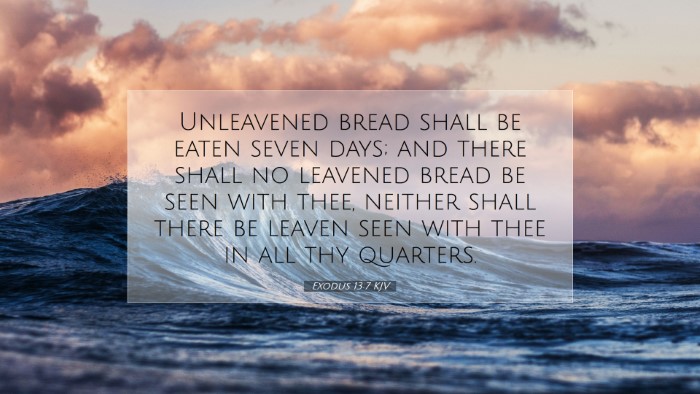Exodus 13:7 Commentary
Verse: "Unleavened bread shall be eaten seven days; and there shall be no leavened bread seen with thee, neither shall there be leaven seen with thee in all thy quarters." (Exodus 13:7, KJV)
Introduction
The verse Exodus 13:7 is critical in the context of the Passover and the Feast of Unleavened Bread, which God commands the Israelites to observe. This commentary aims to delve into the theological significance of unleavened bread, its typological implications, and practical applications for contemporary believers.
Historical Context
Matthew Henry notes that this commandment was given after the Exodus, when the Israelites were to remember their deliverance from Egypt. The context emphasizes purity and separation from Old Egypt, which represents sin and its corrupting influence.
Significance of Unleavened Bread
Symbol of Purity:
Albert Barnes explains that leaven in the Bible often symbolizes sin. Just as leaven spreads through dough, sin can permeate the life of an individual or community. Thus, the Israelites were to consume unleavened bread to signify purity and to remember the haste of their departure from Egypt, not allowing any remnants of sin to linger among them.
Theological Implications
Typological Significance:
Adam Clarke draws attention to the typological aspects of unleavened bread, paralleling it with the life of Jesus Christ. Just as unleavened bread was a foundational element during the Passover, Christ is seen as the “bread of life” without sin. The absence of leaven symbolizes the sinless nature of Christ, who was to be the ultimate sacrifice.
Spiritual Lessons
- Separation from Sin: Believers are called to separate themselves from worldly influences that can corrupt their spiritual walk.
- Spiritual Readiness: The Israelites had to prepare themselves quickly for their departure, reflecting the urgency with which we should respond to God's call.
- Renewal and Cleansing: Just as the Israelites were commanded to purge leaven from their homes, Christians are called to cleanse their hearts and lives of sinful behaviors and attitudes.
Practical Applications
In today’s context, pastors and theologians can draw upon the principle of unleavened bread as a reminder of the need for holiness in the life of the believer. As Matthew Henry asserts, true spiritual freedom is found in obedience to God's commands, which includes the regular practice of self-examination and purification.
Community Reflection
The call to remove leaven reflects not only personal holiness but also the corporate responsibility of the church to maintain purity within the body of Christ. The removal of leaven can represent addressing issues of sin within church communities with grace and truth.
Conclusion
Exodus 13:7 serves as both a historical directive and a timeless spiritual principle. Its implications stretch far beyond ancient Israel, embedding itself within the new covenant theology that emphasizes the purification through Christ. For pastors, students, and theologians, the insights gleaned from the historical significance and theological depth of this verse are vital for fostering a life that reflects God’s holiness.


